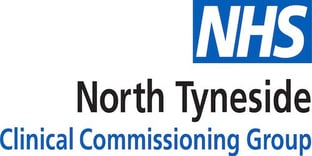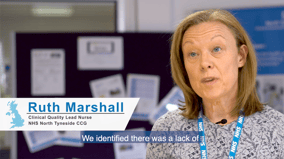We have recently received some amazing feedback from our Palliative Care colleagues in North Tyneside who have been maximising their use of RITA at the North Tyneside Day Hospice. Quizzes, games, photos, video clips, music, sensory, painting and even the 'my life passport' features have all been used to enhance the wellbeing and quality of life of patients. An unexpected outcome has been that patients have enjoyed using the technology and that it has not been as “frightening” as they had imagined. Many patients have been encouraged to explore technology for themselves.
“It is great to see the flexibility of the Rita system being used to support the residents of North Tyneside across the different care settings”
Ruth Marshall - Clinical Quality Lead Nurse NHS North Tyneside CCG
Within the day hospice we have used RITA in many different ways. We have used the quizzes and games facility with patients, both in a group and 1-1 setting. As the system is so easy to use, our experienced volunteers were able to facilitate this, allowing time for staff to conduct 1-1 nursing assessments.
At the start of each session, we have used RITA to perform chair-based exercises as a group, followed by a guided visualisation relaxation session using the music and images stored on the RITA system. A member of staff always facilitates this. We have also used the stored photos, videoclips and TV clips to enable reminiscence sessions and group discussions.
RITA has been an invaluable tool in the care of a dementia patient who frequently became upset and agitated when she was away from her daughter. We used RITA to record her daughter talking to her and this settled the patient enormously. We also used the hand-held device to engage and distract the patient on a 1-1 basis with therapeutic activities such as jigsaws, games and painting.
We have also successfully used the “passport” facility on RITA for several patients to record their wishes and preferences regarding care. We have printed this out so it can be used as an aid to be used between care settings and has reduced the need for repetitive questioning and assessment. This has been particularly useful for patients with communication difficulties. The “passport facility” has proven to be an invaluable stepping stone to opening discussions regarding end-of-life care planning. Qualified staff have used these initial discussions and documentation to develop both group discussion surrounding end of life planning and also the completion of formal advanced care planning on a 1-1 basis.
We are currently using the RITA handheld device to take to individual patients within their own homes. We use the system in all of the ways already outlined above, and our patient feedback has been extremely positive. An unexpected outcome has been that they have enjoyed using the technology and that it has not been as “frightening” as they had imagined. Many patients have been encouraged to explore technology for themselves.
Download a PDF case study here


